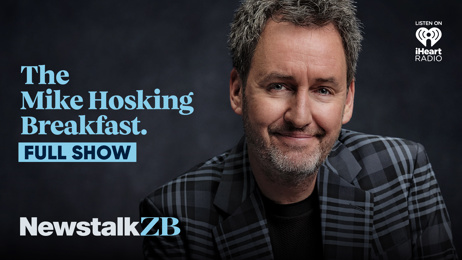Kiwi kids are suffering hearing loss at alarming rates as they spend hours listening to loud music on headphones.
Some are even complaining of constant ringing in their ears, so bad it keeps them awake at night.
It's sparked fears at the National Foundation for the Deaf and Hard of Hearing that local kids could be going deaf at faster rates than global averages.
A pilot study by the foundation of 192 students at Auckland's Rutherford College this year found 11.9 per cent had hearing loss that warranted a referral to a medical specialist.
This was more than double the World Health Organisation's global estimates that hearing loss affected 5.3 per cent of 12-to-19-year-olds living in middle-to-high income countries.
"That's why this project is so important because we need to quickly understand what the hearing loss rates are here and then develop a prevention programme."
It comes as rates of hearing loss accelerate around the world due to technology and society becoming noisier.
WHO now estimates one in five people aged between 12 and 35 suffers from hearing loss - a 30 per cent increase compared to the late 1990s.
In New Zealand, an estimated 880,350 people, or almost 20 per cent of the population, suffered from hearing loss in 2016 at a cost of $957 million to the economy, according to a report commissioned by the NFDHH.
/arc-anglerfish-syd-prod-nzme.s3.amazonaws.com/public/ESVQVQG3DBAM5KRH3DQPR2Z43E.jpg)
Gallardo, who has also suffered from hearing loss since she was 13, said the condition can leave people feeling isolated.
"Hearing loss is an isolating disability because you do become quite disconnected when you don't hear things," she said.
"You remove yourself from social situations and research suggests that there is a link with depression and frustration at work and also anxiety."
"For teens who are already conscious of fitting in, it's a worrying issue and could hold back youths from leading a full life."
The major culprits behind the accelerating health issue were headphones and smartphones as children increasingly spent hours using them to chat, listen to music and watch videos.
It was not just the volume of the sound coming through headphones that could be damaging, but any prolonged use longer than an hour and a half.
During the latest hearing screening tests at Manurewa High School yesterday, one student told Gallardo she was wearing headphones up to 12 hours a day.
Other students said they "listen to a lot of music at full volume" and that they "play basketball and listen to loud music all the time".
WHO has previously estimated almost 50 per cent of all people listening to portable music devices did so in a manner that put their hearing at risk.
Take your Radio, Podcasts and Music with you









